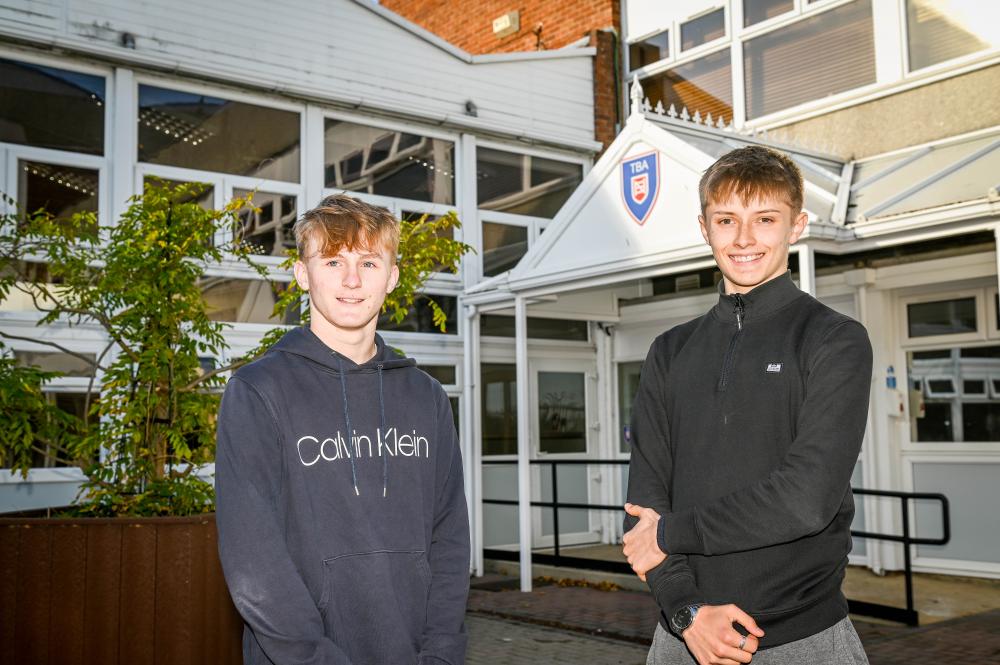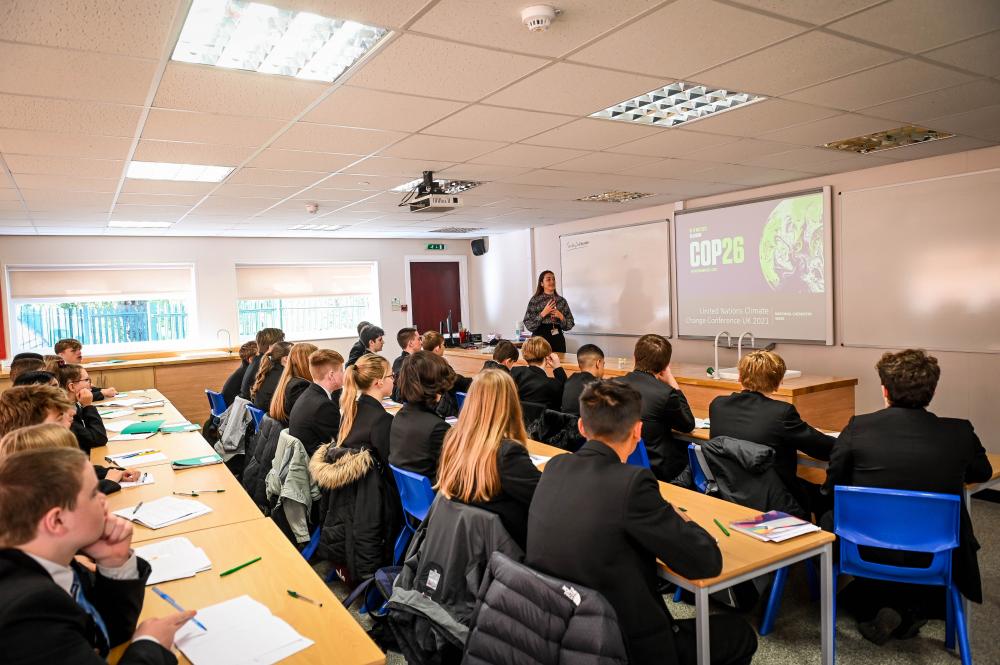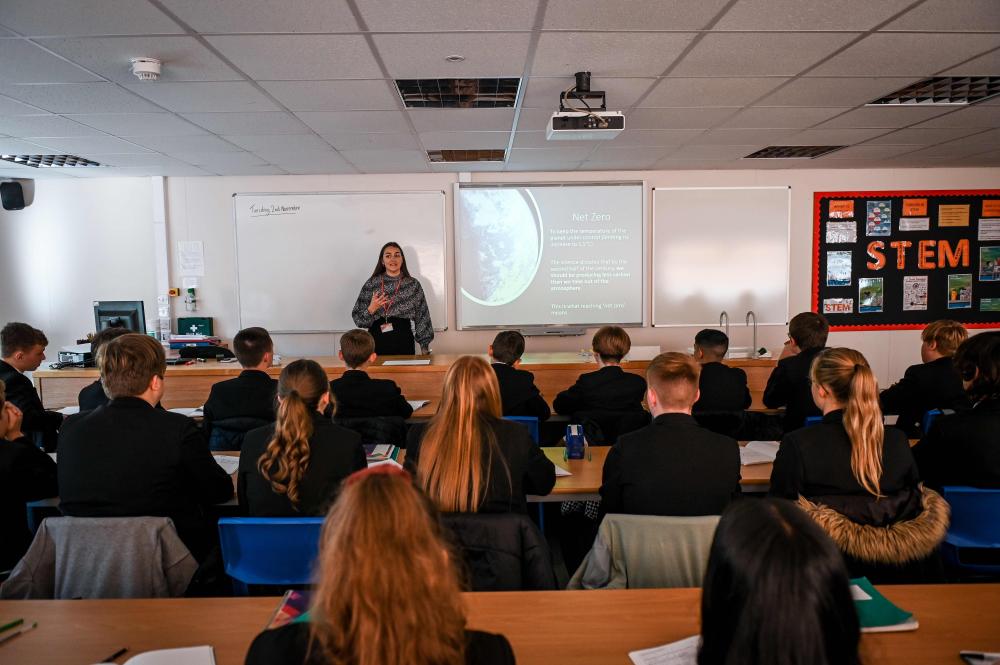Tollbar Students Weigh In On Climate Crisis And Urge Leaders To Make It About More Than Just Words.

Tollbar MAT Sixth Form College Year 12 students Harrison Tasker and Ben Cain (both 16) believe we must all take responsibility for climate change.
Students at Tollbar Academy and Tollbar MAT Sixth Form College are urging global leaders to act now to save the planet and to use their power and influence to turn their words into visible change.
As leaders from around the world debate the future of the Earth at COP26 in Glasgow, members of the generation who could be most impacted by the effects of global warming and the harmful effects of greenhouse gases say now has to be the time to redress the balance before it is too late.
The aim of COP26 is to find ways to limit the global rise in temperatures to 1.5 degrees and adapt the planet to these changes whilst holding governments and leaders to account. Countries are being asked to come forward with ambitious 2030 emission reductions targets (NDCs) that align with reaching net zero (carbon neutrality) by the middle of the century. To deliver on these stretching targets, countries will need to accelerate the phase out of coal, encourage investment in renewables, curtail deforestation and speed up the switch to electric vehicles.
Tollbar Academy students in every year group and in every subject will consider the impact of climate change this term. From visualising the climate crisis through graphs and data assessment in Maths, to the myriad solutions offered by Science, and the physical and human causes and impacts of climate change in Geography, students will be given the broadest possible look at what is happening to our planet and why.
Other subjects will look at solutions to the crisis, from sustainability and cutting consumerism in Technology, to building wildlife gardens in Creative Arts and, in Modern Foreign Languages, the important role of conference interpreters at COP 26 in bringing understanding to everyone. In Art, students will see the world in different ways through creating 400 different coloured corals for a display on glass, to creating 400 “growth mindset mantras” which will be on display alongside the windows to reflect the COVID heart wall in London.
Students have also been considering whose responsibility it is to save the planet. Year 10 student Rory Broughton (15) said he felt the biggest role lies with global leaders.
“I think the main responsibility is with the people with the most power and the most say in the world. They are the ones with the biggest influence over us all. It also lies with members of the older generation, because they need to change their way of living as that is how they have been used to living in the past and that is the reason we are here now.
“I believe people of the younger generation can adapt more easily, even if it just on the little things, like keeping the same water bottle rather than simply throwing things away.”
Fellow Year 10 student Ben Goodwin (15) said: “We vote people into power and they are seen as the people who drive our success, which is for the good of each country’s independence. But then they must work together properly, like at Cop26, to make things better for us all.”
With so much under discussion this week, some students fear it could all just be words. Ben Goodwin added: “Leaders are trying to form new pacts to fix everything, but by 2030 that could be too late. There is less chance nearer the end so why not get it done sooner rather than later? I know is not just down to them. We all need to take individual responsibility and change the small things on a daily basis. People do adapt, and that is what we have been born to do. It is all about change and we simply have to get used to it.”
Tollbar MAT Sixth Form College Year 12 student Ben Cain (16) said: “We need to change and I feel like it is important for these leaders to guide us and implement certain regulations and rules to help us get to where we need to be. We have to cut down on certain things. It is going to be a hard change because we have been used to doing all these things like throwing plastic away for so long, but I think we can do it. I think when people realise the circumstances and consequences of us not changing then they will take it seriously and do it.
Year 12 student Harrison Tasker (16) also believes it is about everyone taking responsibility for their own actions.
“We should all be aware of how this is going to affect people in general. It is not just about my generation now, it is about the livelihood of the planet and our species as a whole. It is going to have an adverse effect on how we get food, how we control populations, and things like that. Once you start to destroy eco-systems it has a huge domino effect on how the rest of the world works and how our lives will be affected by it, and deforestation is definitely a major issue.”
Harrison believes that youth environmentalist Greta Thunberg has got the ear of the people. “She would not get the attention she does if people weren’t listening,” he said. “Whether they are taking what she says to heart like they should or whether they are just aware of it, it still makes a difference.”
Ben Cain added: “Greta is having a huge impact, but what she is really doing is making world leaders think and almost embarrassing them into thinking why aren’t we doing anything about it, and I believe that is the deciding factor.”

Tollbar Academy Year 10 students discuss the COP26 climate change conference and what it means for us all as part of their Chemistry lesson.

Achieving Net Zero - or carbon neutrality - is the single largest aim of COP26. Here in a Science lesson, Year 10 students are taught about why that is so important and what we must do to get there.